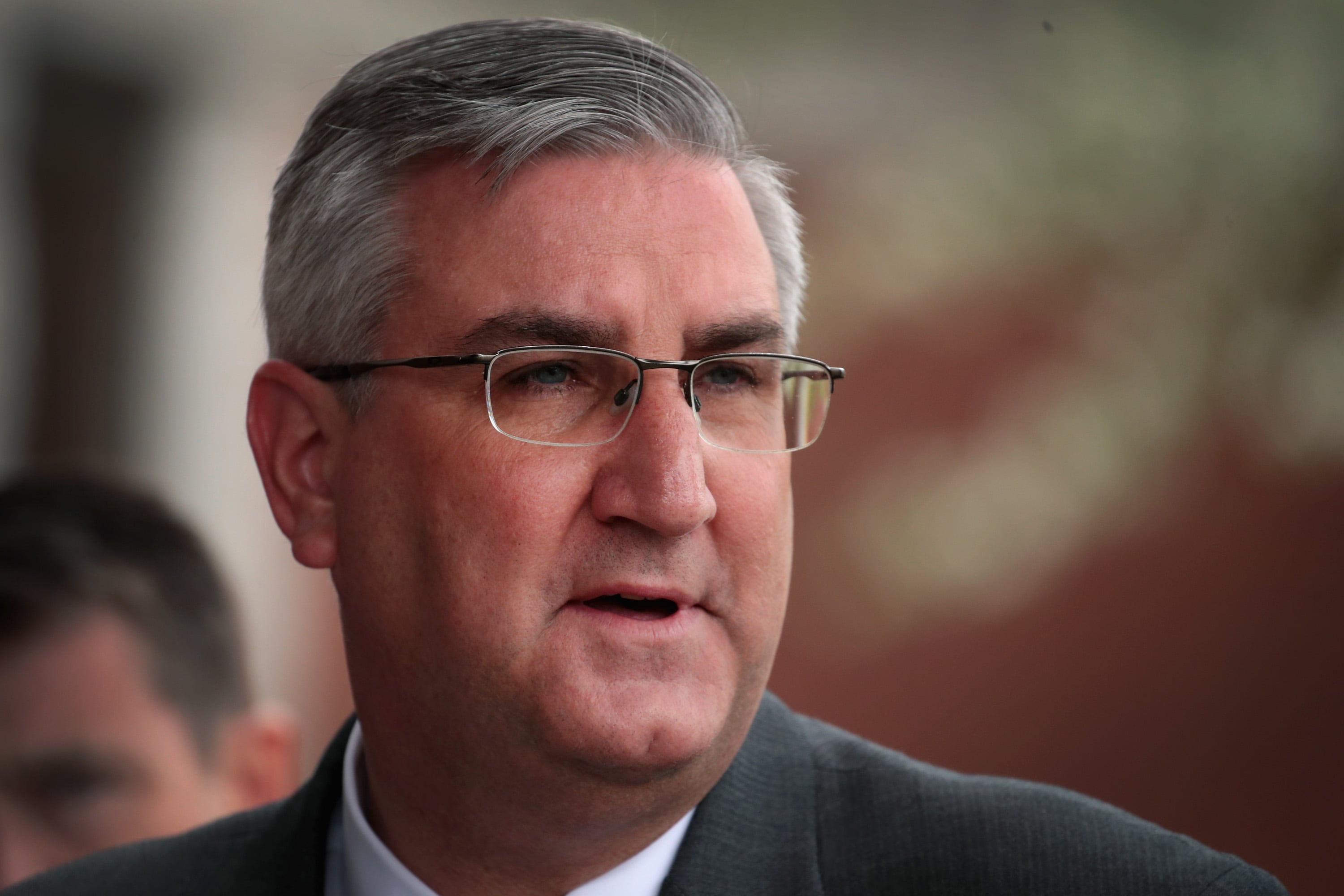Chalkbeat is profiling the education stances of the two major-party candidates for Indiana governor in the 2020 election. Read about Democratic challenger Dr. Woody Myers’ education plans here.
Six months ago, Republican Gov. Eric Holcomb mustered his executive power to take an extreme step at the start of the pandemic: Close the schools.
It was perhaps one of the biggest decisions any governor has made in recent history. A few months later, Holcomb made another significant call in declaring that students could return to classrooms.
Holcomb’s response to the coronavirus pandemic will likely factor significantly into whether voters secure him a second term as Indiana’s governor. A moderate Republican, Holcomb can also point to several ways he’s responded to educators’ concerns, such as pledging twice to free up more money for schools so they can spend more on teacher salaries, supporting a hold-harmless measure on low test scores, and putting to rest a controversy over possible school funding cuts this summer.
“I know that a great economy is based on a great workforce. A great workforce is developed by a great education system. And a great education depends on great teachers,” Holcomb told Chalkbeat.
But Holcomb has also been criticized by Indiana teachers, who turned out in record numbers last year at a Statehouse rally to pressure lawmakers to take action on teacher pay, standardized testing, and school funding. While Holcomb has promised to study the teacher pay issue and have experts bring policy suggestions, he hasn’t yet delivered the results. One of his promises to raise teacher pay in the future may no longer be financially viable in a pandemic economy.
And Holcomb, who has spent his career working for Indiana’s GOP, appeared to have a strained relationship with fellow Republican Jennifer McCormick, the state’s education leader who has advocated for teachers. In a splashy move last week, McCormick crossed party lines to support Holcomb’s opponent in the governor’s race.
Holcomb supported stripping voters of the opportunity to elect a state superintendent, instead giving the governor the power to choose the state’s top education official.
Holcomb’s campaign declined an interview request from Chalkbeat. Holcomb responded to questions by email about what he’s learned about education politics and how the state can continue supporting schools through the pandemic.
On increasing teacher pay:
Holcomb said his teacher pay commission will release its report in December, “in time for leaders to discuss ways to get more dollars into teacher paychecks.”
The budget constraints caused by the pandemic will make those recommendations even more important, he said.
“We do need to recruit more teachers, especially teachers from minority communities, and we need to do more to keep the great teachers who are already in the profession,” Holcomb wrote. “Increasing their compensation is one way to do that.”
He noted that he believes the state has made progress on teacher pay, since nearly every school district offered some kind of salary increase in last year’s teacher contracts. Holcomb highlighted Indiana’s regular incremental increases to school funding and paying down $150 million in schools’ pension liabilities, which helped some districts offer raises but resulted in little savings for others, as IndyStar reported last year.
On school funding in the next budget:
State revenues have declined during the pandemic, which means state lawmakers will likely have to shape a smaller two-year budget.
“Some difficult choices will need to be made,” Holcomb said. “Having said that, education will remain our top priority.”
On education politics:
Holcomb said he didn’t think education politics caused a lot of friction, casting it instead as “a lot of passion surrounding education issues.”
Holcomb didn’t address tensions, highlighting instead moments of consensus, such as lawmakers’ swift, bipartisan move to protect schools and teachers from low ILEARN results when Indiana switched to the new standardized test.
“Of course, there’s never unanimity on all issues, but in Indiana we’ve shown that we can work together to get things done, and that’s certainly been the case when it comes to education and will continue to be my intent,” he said.
On naming a secretary of education:
Holcomb said he’s looking for an education leader who is “honest, hungry, and humble and has the needs of students at heart. I want a leader that’s creative and is thinking about education in a holistic sense... meaning K-12, higher education, career training, and can collaborate with superintendents, principals, teacher organizations, and parents.”
On education in the pandemic:
Throughout his response to Chalkbeat’s questions, Holcomb praised the work of educators to respond to the challenges of teaching through the coronavirus crisis and noted the state’s efforts to close the digital divide even before the pandemic started. He also acknowledged that the pandemic will exacerbate inequities in education among the most vulnerable students.
“It will be important for us, as a state, to stay focused on student learning... and knowing where we are now and how we will be better after this,” he said.







